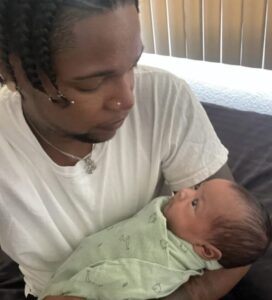I was just driving home from Mom’s old place—clearing out the last dusty box of her sweaters, trying not to cry into the steering wheel—when I saw the sign. A crooked wooden board leaning against a post near the road, painted in big red letters:
“FARM SALE – TODAY ONLY.”
Something in me hit the brakes before I even realized my foot had moved. Maybe it was the word “farm.” Maybe it was the word “today.” Maybe it was just the ache in my chest that needed a pause, a breath, a distraction. The tires crunched the gravel shoulder as I pulled over. I sat for a moment, engine ticking in the silence, hands still wrapped around the steering wheel like I didn’t know what to do if I let go.
It had been a long day. A long week. A long grief.
Mom had been gone for almost six months, but sorting through her house still felt like sneaking into a life that didn’t quite belong to me anymore. Her sweaters, carefully folded, still carried the soft scent of lavender and dryer sheets. The sight of them in the box beside me—cardigan after cardigan she’d worn to holidays and garden walks—felt like saying goodbye all over again.
I turned off the car and stepped out into the July air, thick with the scent of sun-warmed earth and something faintly floral. The farmhouse was just beyond the hill, its red roof peeking out between tall corn stalks and a wind-worn barn. There were tables set up in the yard, objects arranged with a sort of tender chaos: old tools, glassware, a pile of vinyl records warped from the sun, and a few rows of rusted tin signs.
An elderly man in suspenders waved from a folding chair, his dog napping lazily at his feet. I nodded back, not yet ready to speak. I wandered the tables slowly, touching things without picking them up—just letting my fingers graze memories that weren’t mine.
Then I saw it.
A rocking chair.
Faded, creaky, the kind of wood that had long since lost its varnish but not its charm. It was nearly identical to the one Mom used to sit in on our old porch, humming to herself while the sun sank behind the trees. She’d sip peppermint tea and knit, her feet nudging the floor in a slow, steady rhythm.
Without thinking, I sat in it.
The chair groaned under my weight, then settled, like it remembered the job. I rocked once. Twice. The air shifted. The ache in my throat loosened.
“Was my wife’s favorite,” the old man said quietly, suddenly beside me. I hadn’t noticed him walk over. He looked at the chair, not me. “She passed last spring.”
Our eyes met. Something unspoken passed between us—a simple, shared understanding of what it means to lose someone who shaped your world.
I bought the chair. Paid in cash. Didn’t haggle.
He helped load it into the trunk, right beside the box of sweaters. As I drove away, the wind carried the scent of cut grass through the open window, and the tears I’d been holding back finally came. But they weren’t bitter. Not entirely. There was something soft in them. Something like peace.
Mom was gone. But maybe, just maybe, there were still pieces of her waiting for me in unexpected places—on winding roads, behind hand-painted signs, in old wooden chairs that remembered how to hold a person gently.
And maybe I didn’t need to rush home just yet.





